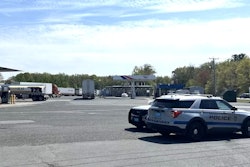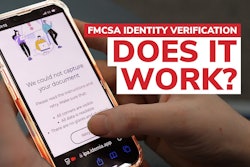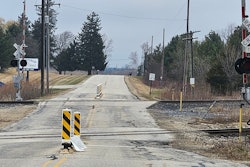Trucking’s enduring mystery of 2025 revolves around non-citizen drivers. How many are there? Are they safe? Will they exit the market following President Donald Trump’s English language proficiency executive order and promise to investigate the issuance of CDLs to individuals not permanently domiciled in the U.S.?
Nobody really knows. Trump’s executive order itself calls for a “review” of states' non-domiciled CDLs to spot any “unusual patterns” in their issuance. The Federal Motor Carrier Safety Administration, the Commercial Vehicle Safety Alliance and the American Association of Motor Vehicle Administrators all say they have no idea how many of these licenses for non-citizens exist.
An Overdrive investigation querying states on their non-domiciled CDL counts uncovered tens of thousands of such CDLs issued over the last decade and found that, sometimes, the states doing the issuing don’t know even know their own numbers. California, for instance, doesn’t keep track of its own non-domiciled numbers, and Texas initially reported wildly off-the-mark numbers it later corrected.
All the uncertainty hasn't stopped trucking factions from arguing. A blog post from the American Trucking Associations called No, millions of foreign truck drivers aren’t flooding into the U.S. disputed claims from the American Truckers United activist group that large-scale “labor dumping” is hurting driver wages and road safety. Our own querying of states about CDL issuance hasn't turned up evidence of “millions of foreign truck drivers” operating on U.S. roads, but certainly tens of thousands or even a few hundred thousand.

[Related: English language proficiency crackdown? Here's what states are saying]
Amid all the counting and hypotheticals, something gets lost. On the final day of Roadcheck at the I-84 scales in Union, Connecticut, just by the Massachusetts border, I dropped in and met with a non-citizen driver who likely lacked full English language proficiency and had been placed out-of-service. The driver had been flagged for low tire pressure and some other vehicle defects, but his OOS paperwork said his fleet was OOS itself, having lost its operating authority.
Some might say this is everything wrong with trucking today: A foreign driver with poorly maintained equipment, limited ability to read English, and a bad safety record. But is that this guy’s fault?
Everyone has a story. Did he like driving? Definitely “yes,” he said, while apologizing for his English.
“Your English is good,” I said. He was maybe a little frazzled after being placed OOS and left waiting for a police escort to the nearby TA to get his tires aired up and next moves figured out, but he was speaking clearly, saying things that made sense.
“Yeah, my apps tell me so,” he said.
“Oh you’re learning English on an app?”
“Yes, when I came to this country I didn’t know... ‘I’, ‘you,’ ‘me,’” he said, just a few pronouns I imagine aren’t the same in Pashto.
The driver told me he was from Afghanistan and living in Texas. He had been in the states since 2021, when the U.S. pulled out of Afghanistan. Back in his home country, his family worked with the U.S. during some of the 20-odd-year war the U.S. fought there. Since 2021, the U.S. has welcomed about 200,000 Afghans under a Department of Homeland Security initiative called Operation Allies Welcome, meant to “to support vulnerable Afghans, including those who worked alongside us in Afghanistan for the past two decades, as they safely resettle in the United States,” according to the program's description of the effort.
That includes about 10,000 people in the Houston, Texas, area alone, according to NPR.
The driver noted that while he spoke English, he couldn’t exactly read it. According to UNESCO in 2022, 48% of Afghan men couldn't read, compared to about 21% of Americans, according to the National Literacy Institute.
The driver mentioned Trump’s executive order to boost language proficiency. He said mostly he uses a translation app that can take a picture of text and translate it.
“Next month, maybe I will have to learn to read English,” he said. “But maybe that’s good.”
“It’s good that you’ll have to learn to read English?” I said.
He nodded yes.
“That’s good,” I said.
According to the latest Federal Motor Carrier Safety Administration guidance on enforcing ELP, his strong speaking skills would probably pull him through if he could just recognize a few road signs under the new two-pronged criteria. But still, it was on his mind.
He told me he was 22 years old and one day wanted to buy his own truck and become an owner-operator. He said his family was making friends in Texas and that he still loved Afghan food the best, even as he acquired a taste for staples like American barbecue and McDonald’s.
Driving paid well, he said, giving him the opportunity to provide for his family back in Texas, and in Afghanistan. He showed me a small rub on a hose from the frame of his truck, and asked if I thought that was enough for a violation. I didn’t know.
 See the tiny bright spot on the frame? Is that grounds for a violation in your opinion? The hose itself did not show wear.
See the tiny bright spot on the frame? Is that grounds for a violation in your opinion? The hose itself did not show wear.
I did get the impression that a driver’s wage represented a lot of money for him, if not back in Texas, then certainly in Afghanistan. While I worry about unsafe drivers who can’t read road signs, I can’t bring myself to worry about a person trying to work their way into a new life, a better place.
It was about time for me to make tracks, so I shook his hand and told him God bless and be safe. And though I'm older than him, I can remember what it felt like to be his age. I couldn’t help but feel a little excited for him, a young man in a new country, checking out new foods, seeing the world, hopeful to learn and grow in his profession. You might look at this man and think him the exact type to oppose Trump’s ELP mandate. But rather than fear the uncertainty, he seemed to get a kick out of it, to accept the challenge.
You just never know what’s going on in someone else’s life, what they might think or support or do. The Trump administration's DOT and its FMCSA, the Commercial Vehicle Safety Alliance, the ATA and the ATU, the Owner-Operator Independent Drivers Association and broker group the Transportation Intermediaries Association. ... All have signaled support for bringing back ELP violations to the OOS criteria. So did this driver.
“Maybe it’s good,” he'd said, and the words rang around in my head. Maybe he has what it takes, I thought, looking around the OOS area at the scales, seeing plenty drivers thrown plenty challenges, some with their own sketchy stories.
[Related: Connecticut inspectors talk HOS, ELP enforcement at Roadcheck]
I felt grateful for this driver sharing his story with me. Keep tuned for further reporting on non-domiciled CDL counts as we gather more data. And I'm hopeful that everyone behind the wheel takes their challenges in stride, stays safe, and provides for that family back at home.











